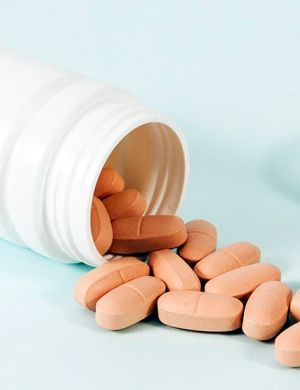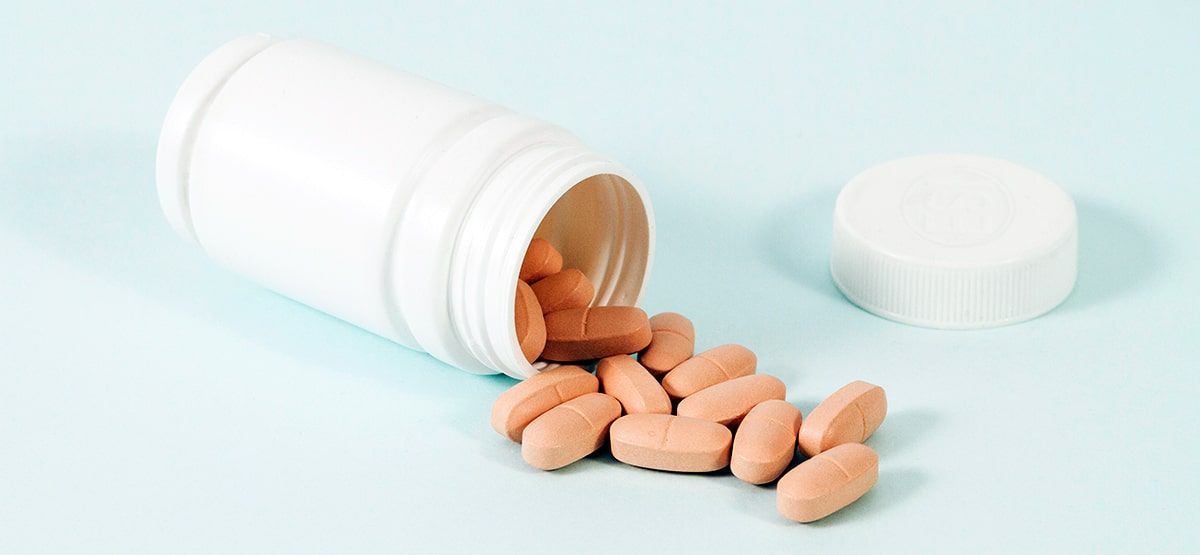

Pharma- Asia, S America, MENA, ROW Regulatory News – July 2025
ARGENTINA
ANMAT Opens Public Consultation on ICH E20 Guideline for Adaptive Clinical Trials
The National Administration of Drugs, Food and Medical Technology (ANMAT) has opened a public consultation on the draft ICH E20 Guideline titled “Adaptive Designs for Clinical Trials.” This international guideline, currently in Stage 3 of the ICH process, provides comprehensive principles for the planning, conduct, analysis, and interpretation of confirmatory clinical trials that incorporate adaptive design elements. These designs allow for pre-specified modifications based on interim data, aiming to confirm treatment efficacy and support benefit-risk assessments. The guideline promotes global harmonization, facilitating multiregional trials and accelerating the development of safe and effective treatments. ANMAT invites laboratories, contract research organizations, researchers, and ethics committees to submit comments by October 8, 2025, via email to relaciones.internacionales@anmat.gob.ar. The draft document and submission template are available on the official ICH website. This initiative reflects ANMAT’s commitment to modernizing clinical research practices and fostering international collaboration.
ANMAT Issues New Guidelines for HIV Clinical Studies Involving Pregnancy and Breastfeeding
On July 22, 2025, ANMAT released national guidelines on contraception, pregnancy, and breastfeeding in clinical pharmacology studies for HIV treatment or prevention. The recommendations aim to support inclusive research and clarify regulatory expectations for studies involving pregnant and lactating women. These guidelines apply to all studies under ANMAT’s scope and promote ethical, safe, and scientifically sound practices.
AUSTRALIA
Australia Updates Labelling Rules for Probiotic Medicines
On July 7, 2025, the Therapeutic Goods Administration (TGA) announced an amendment to the Therapeutic Goods Act 1989, exempting certain probiotic medicines from a labelling requirement in monograph 3053 of the British and European Pharmacopoeias. Sponsors of listed medicines containing live microorganisms no longer need to declare stabilisers and excipients on product labels, streamlining compliance for eligible products.
Australia Extends GMP Clearances to Ease Backlog
On July 10, 2025, the Therapeutic Goods Administration (TGA) announced a two-year extension for all Mutual Recognition Agreement (MRA) and Non-Sterile API Compliance Verification GMP Clearances set to expire between July 2025 and June 2027. Over 6,200 extensions were processed without individual notifications. Sponsors can verify updated expiry dates via the TGA eBusiness portal. This move is part of a broader strategy to reduce the GMP clearance backlog and improve processing efficiency.
TGA Publishes July 2025 Safety Updates to Product Information
On July 24, 2025, the TGA released new safety-related updates to Product Information (PI) for several medicines, including alprostadil, armodafinil, avelumab, baclofen, buprenorphine, and others. Changes include new warnings, contraindications, and adverse effects—such as fetal harm, cytokine release syndrome, and metabolic acidosis. Healthcare professionals are advised to review these updates to ensure appropriate prescribing and patient counseling.
BRAZIL
ANVISA Opens Call for Contributions to ICH M4Q(R2) Guide
ANVISA has opened Call for Proposals No. 8/2025 to collect public contributions for the draft ICH M4Q(R2) Guide, which updates the organization of quality information in drug registration dossiers. The revised guide aims to include all types of pharmaceutical substances and products—both synthetic and biological—and improve the structure of Modules 2.3 and 3 of the Common Technical Document (CTD). It incorporates concepts from ICH Q8 to Q14, enhances pharmaceutical development and control strategies, and streamlines regulatory submissions. Contributions can be submitted through an electronic form until September 5, 2025, preferably in English. Participation is open to professionals involved in the development, registration, and quality assessment of medicines and biological products in Brazil.
Technical Chamber for Drug Registration renews its board for 2025
ANVISA has renewed the board of Cateme, its Technical Chamber for Drug Registration, through Ordinance No. 854/2025. The updated group brings together experts from various institutions to strengthen regulatory decisions on medicines and biological products. Cateme plays a key role in conducting technical studies, issuing recommendations, and promoting social participation in ANVISA’s drug registration process.
Operation Safe Aesthetics Phase II: ANVISA Uncovers Widespread Violations in Clinics and Distributors
During Phase II of Operation “Safe Aesthetics,” ANVISA inspected 38 aesthetic clinics across the Federal District and the states of Amazonas, uncovering sanitary irregularities in 35 of them. Violations included the use of expired or unregistered products, improper storage of injectables, reuse of single-use instruments, and illegal procedures such as plasmapheresis performed outside authorized medical settings. Three clinics were completely shut down due to severe risks, while five others faced partial closures. Inspections also extended to compounding pharmacies and distributors, where expired injectables, unauthorized repackaging, and falsified labeling were found. The operation, involving around 80 inspectors, was based on complaints and evidence from Phase I conducted earlier in 2025, and aims to strengthen oversight and ensure safety in the aesthetic and cosmetic sector.
CHILE
Hydrochlorothiazide and Risk of Acute Respiratory Distress Syndrome (ARDS)
The Public Health Institute has issued a safety alert regarding hydrochlorothiazide, a diuretic and antihypertensive drug, warning of a very rare but serious risk of Acute Respiratory Distress Syndrome (ARDS). This follows a review that included findings from the European Medicines Agency’s PRAC, which confirmed a causal link between the drug and ARDS based on case reports and re-exposure data.
Market Withdrawal Alert: Diclofenac Gel 1.16% (Lot 240301)
Chile’s Public Health Institute (ISP) has announced the voluntary recall of Diclofenac Diethyl ammonium Gel 1.16% from BPH S.p.A., due to the detection of a foreign particle in lot 240301. This batch, expiring in March 2027, poses a potential health risk and must not be used. Healthcare providers, pharmacies, and patients are urged to identify and return affected units. Only this specific lot is impacted.
CHINA
China and Uzbekistan Sign Regulatory Cooperation Agreement on Pharmaceuticals
Li Li, Commissioner of China’s National Medical Products Administration (NMPA), met with Alisher Temirov, Acting Director of Uzbekistan’s Center for the Safety of Pharmaceutical Products, in Beijing on June 27. The two sides held in-depth discussions on enhancing bilateral cooperation in drug and medical device regulation. A memorandum of understanding was signed to promote regulatory alignment, public health protection, and high-quality pharmaceutical development between the two countries
EGYPT
EDA Reports 54% Pharmacy Participation in Expired Drug Recall Initiative
As of July 7, 2025, the Egyptian Drug Authority (EDA) announced that 54% of pharmacies nationwide have registered over 17 million expired medication units as part of the national Expired Medicines Disposal Initiative. With registration extended until July 30, the initiative aims to ensure the safe withdrawal and disposal of expired drugs through coordinated efforts among manufacturers, distributors, pharmacies, and regulatory bodies. Governorates like New Valley and Suez lead in participation, while others like South Sinai and Giza show lower engagement. A 90-day withdrawal phase will follow, ending October 31, during which distributors will collect and sort the expired units. The initiative reflects Egypt’s commitment to public health and environmental safety through structured pharmaceutical waste management.
INDIA
India Mandates Online Submission of WHO-GMP COPP Applications via ONDLS Portal
The Central Drugs Standard Control Organization (CDSCO) has announced that, effective July 15, 2025, all applications for WHO-GMP Certificates of Pharmaceutical Product (COPP) must be submitted exclusively through the ONDLS portal. Physical submissions will no longer be accepted. Developed by CDAC, the portal streamlines licensing for manufacturing, sale, and blood centers. State Drug Controllers are instructed to ensure compliance, and manufacturers must complete site registration, license data updates, and product approvals before filing COPP applications online. This digital shift aims to enhance transparency, efficiency, and regulatory alignment with global standards
Extension of Deadline for WHO GMP COPP Applications via ONDLS Portal
CDSCO has extended the deadline for mandatory submission of WHO GMP COPP applications through the ONDLS portal to 15 August 2025, in response to industry challenges with onboarding. From this date onward, no physical files will be accepted for WHO GMP (COPP) or manufacturing license approvals. Manufacturers are advised to complete their registration and document uploads on the portal.
INDONESIA
BPOM Launches Regulation on Public Oversight
BPOM introduced Regulation No. 16/2025 to involve the public in monitoring drugs and processed foods. The regulation promotes responsible, fact-based product reviews and reporting. It aims to prevent misinformation and protect consumers and businesses. A guidance book was launched to support public participation. This marks a step toward inclusive, transparent health oversight.
Indonesia & India Deepen Drug Oversight Cooperation
BPOM and CDSCO held a bilateral meeting to strengthen regulatory collaboration on pharmaceuticals and cosmetics. A 5-year MoU is being finalized to support joint assessments, reference standards, and technical exchanges. India proposed affordable, high-quality reference standards to support Indonesian drug certification. Both sides aim to harmonize regulations and monitor online drug distribution. The MoU may be signed at the Global Food Regulator Conference in September 2025
BPOM Champions ASEAN Pharma Harmonization at CPHI SEA 2025
BPOM joined CPHI SEA 2025 in Kuala Lumpur, ASEAN’s largest pharma summit, held July 16–18. Head Taruna Ikrar presented via video on aligning BPOM’s regulations with ASEAN standards. Key initiatives include risk-based licensing, digital public services, and ACTD/MRA harmonization. The summit hosted 8,000+ participants and 400 companies from across Southeast Asia1. BPOM’s presence strengthens Indonesia’s role in regional pharmaceutical oversight.
BPOM and Sudan Sign MoU to Boost Drug Oversight and Market Access
BPOM and Sudan’s NMPB signed a landmark MoU to enhance pharmaceutical, supplement, and cosmetic regulation. The agreement includes training, GMP inspection sharing, and regulatory reliance starting in 20262. Sudan imports over $400M in medicines annually, offering vast market potential for Indonesian products. The MoU supports BPOM’s goal of achieving WHO-Listed Authority status. Sudan’s ambassador emphasized opportunities for halal medicine exports and deeper economic ties.
JAPAN
PMDSI Update: Strengthening Traceability and Post-Marketing Surveillance
PMDSI highlights the mandatory registration of pharmaceuticals, medical devices, and related products in a centralized product database, along with the utilization of barcodes for improved traceability and recall efficiency. It also includes important safety updates on Thiamazole, revisions to precautions for select drugs, and a list of products under Early Post-marketing Phase Vigilance. Healthcare professionals are reminded of their duty to report adverse reactions and product issues via the PMDA’s reporting portal.
Implementation of PDG harmonized texts into Japanese Pharmacopoeia
Starting with the sign-offs dated December 22, 2020, the Pharmacopoeia Discussion Group (PDG) began publishing not only the Sign-off Cover Sheets—which detail harmonized provisions, non-harmonized elements, and local requirements—but also the full texts of harmonized general chapters. This move enhances transparency and accessibility across the three participating pharmacopoeias: the United States Pharmacopeia (USP), the European Pharmacopoeia (Ph. Eur.), and the Japanese Pharmacopoeia (JP).
PMDA’s Regulatory Framework for Radiopharmaceuticals
Radiopharmaceuticals play a vital role in modern nuclear medicine, offering precise diagnostic and therapeutic capabilities through the use of radioisotopes. The Pharmaceuticals and Medical Devices Agency (PMDA) in Japan oversees these products under a specialized regulatory framework. In vivo and in vitro diagnostic agents, therapeutic radiopharmaceuticals, generators, and synthesizers are each reviewed by designated PMDA departments to ensure compliance with safety and efficacy standards. This structured approach supports innovation while safeguarding public health, reflecting Japan’s commitment to advancing medical technologies through robust regulation.
MALAYSIA
Registration Guidance Document (DRGD) Third Edition, Tenth Revision – July 2025
On July 31, 2025, Malaysia’s Ministry of Health officially enforced the Drug Registration Guidance Document (DRGD) Third Edition, Tenth Revision, issued by the National Pharmaceutical Regulatory Agency (NPRA). This updated guideline consolidates regulatory procedures for registering pharmaceuticals, traditional medicines, and health supplements. It includes revised requirements for product classification, dossier submission, quality control, licensing, and post-registration activities. All applicants and product registration holders must comply with the new DRGD.
QR Code Guidance for aRMM – July 2025
The National Pharmaceutical Regulatory Agency (NPRA) of Malaysia released a guideline in July 2025 for the use of QR codesonAdditional Risk Minimization Materials (aRMM). These materials—such as patient guides and prescriber brochures—support safer use of medicines with specific safety concerns. QR codes offer optional digital access, improving readability and accessibility for healthcare professionals and patients. All QR-linked content must be non-promotional and approved by NPRA.
Medicine Supply Disruption & Discontinuation Reporting – July 2025
The Ministry of Health Malaysia has mandated a phased implementation of the Guideline on Reporting of Medicine Shortage and Discontinuation, effective from 1 August 2025. This directive requires Product Registration Holders (PRHs)to report any supply disruptions or discontinuations of medicines—especially biologics, vaccines, and scheduled poisons—six months in advance or immediately if unforeseen. The guideline aims to strengthen supply chain management and ensure continuous access to essential medicines. Reports will feed into NPRA’s public database, including alternative product listings.
MEXICO
ICH E21 Draft Guideline Open for Public Comment
The International Council for Harmonization (ICH) has released the E21 Draft Guideline for public consultation, focusing on the inclusion of pregnant and breastfeeding individuals in clinical trials. This guideline aims to promote ethically responsible and scientifically rigorous approaches to involving these populations, who have historically been underrepresented in research. It outlines considerations for trial design, informed consent, safety monitoring, and regulatory harmonization. Stakeholders are invited to submit comments using the official ICH Comment Form by 13 August 2025. Submissions should be sent to CTCGuidelines@sahpra.org.za and Kedibone.Malatji@sahpra.org.za.
NEW ZEALAND
Medsafe Proposes Potency Labelling for Topical Corticosteroids
Medsafe is consulting on a proposal to require package labels for topical corticosteroids to clearly state their potency—mild, moderate, potent, or very potent. This move follows concerns raised by the Medicines Adverse Reactions Committee (MARC) about inappropriate overuse and withdrawal reactions. The goal is to help consumers better understand their treatments, avoid misuse, and manage skin conditions more safely. The proposed advisory statement would apply to both plain and combination products, including prescription and over-the-counter items. If approved, manufacturers would need to implement the labelling change within 18 months of the update to the Label Statements Database
Medsafe Issues Warning About Fake Endorsements and Scam Advertisements
On 22 July 2025, Medsafe alerted the public to a rise in fraudulent advertisements falsely claiming Medsafe approval or using its logo. These scams—often found on websites and social media platforms—mislead consumers into believing certain health products or services are endorsed by New Zealand’s medicines regulator. Medsafe emphasized that it does not advertise, sponsor, or approve any specific products outside its formal medicine approval process under the Medicines Act 1981. Consumers are urged to verify the legitimacy of online sellers and avoid purchasing medicines from unverified sources, as such products may pose serious health risks. For accurate information, Medsafe’s official website remains the sole trusted source of regulatory updates and approvals.
Medsafe Opens Applications for Psychedelic-Assisted Therapy Prescriptions
On 24 July 2025, Medsafe released new guidance for healthcare practitioners seeking approval to prescribe psychedelics—such as psilocybin—for therapeutic use outside of research settings. Under regulation 22 of the Misuse of Drugs Regulations 1977, practitioners can now apply to prescribe, supply, and administer these substances for defined clinical purposes. This marks a significant step in New Zealand’s evolving approach to mental health treatment, aligning with international interest in the therapeutic potential of psychedelics for conditions like depression, PTSD, and anxiety. Medsafe has provided detailed application forms and guidelines to support compliance and ensure safe, regulated use.
NIGERIA
NAFDAC Hosts African ML3 Regulatory Agencies in Abuja
On July 7, 2025, Nigeria’s National Agency for Food and Drug Administration and Control (NAFDAC) welcomed heads of seven other WHO Maturity Level 3 (ML3) regulatory agencies to Abuja for the inaugural meeting of the African ML3 Reliance Mechanism. The gathering marked a major milestone in strengthening regulatory collaboration across the continent. A Memorandum of Understanding signed earlier this year formalized shared commitments to reliance-based practices, joint assessments, and data exchange. A Steering Committee was inaugurated to guide implementation, with Mr. Richard Rukwata (MCAZ) elected Chair and Dr. Ali Ghamrawy (EDA) as Vice Chair. The mechanism aims to streamline product approvals, reduce duplication, and support African Union health strategies including AMA, AMRH, and Agenda 2063
QATAR
SFDA Approves Skyclarys for Rare Neurological Disorder Friedreich’s Ataxia
On July 23, 2025, the Saudi Food and Drug Authority (SFDA) approved the registration of Skyclarys (omaveloxolone) for the treatment of Friedreich’s ataxia in patients aged 16 and older. This rare inherited neurodegenerative condition impairs movement and quality of life. Skyclarys works by activating Nrf2, a protein that boosts antioxidant defenses and reduces oxidative stress. Clinical trials showed significant improvements in motor function and long-term benefits over three years. The drug was registered under SFDA’s Orphan Drug Program, which accelerates access to treatments for rare diseases and supports Saudi Vision 2030 healthcare goals
SFDA Suspends European Pharmaceutical Factory Over Safety Violations
On July 14, 2025, the Saudi Food and Drug Authority (SFDA) suspended the registration of a European pharmaceutical factory after uncovering serious breaches of Good Manufacturing Practices (GMP) during an external inspection. The violations—centered on flawed manufacturing procedures and a deficient internal quality system—posed a direct risk to the safety of medicines intended for export to Saudi Arabia. The inspection was part of SFDA’s foreign factory oversight program, which adheres to international regulatory standards. As a precautionary measure, the suspension aims to prevent potentially unsafe products from reaching consumers.
SINGAPORE
SaMD & CDSS Guidelines Update – July 2025
On 21 July 2025, Singapore’s Health Sciences Authority (HSA) released Revision 2 of its guidelines titled “Guidelines on Risk Classification of Software as a Medical Device (SaMD) and Qualification of Clinical Decision Support Software (CDSS)”. The update aligns terminology with international standards, replacing “Standalone Medical Mobile Applications” with “SaMD” and clarifying when SaMD falls under Class B risk—especially under Rule 10(i) of GN-13. It also introduces a new criterion: CDSS software is not regulated as a medical device if its recommendations are solely based on established clinical guidelines without adaptive logic or AI. This revision helps developers determine regulatory obligations and risk classification for software-based medical tools.
Therapeutic Product Registration Guidance Revisions
On 30 July 2025, Singapore’s Health Sciences Authority (HSA) implemented key updates to its therapeutic product registration guidelines to improve regulatory efficiency and clarity. Changes include enhanced application checklists in Excel format for NDA, GDA, and MAV submissions, stricter prerequisites for dossier screening, updated GMP compliance documentation, and a streamlined online Drug Master File (DMF) submission process. Additional revisions clarify forensic classification criteria for prescription-only medicines (POM), pharmacy-only (P), and general sale list (GSL) products. These updates aim to reduce screening queries and support smoother regulatory submissions
Newly Identified Risk of Anaphylactic Reactions – Safety Alert
On 11 July 2025, Singapore’s Health Sciences Authority (HSA) issued a safety alert regarding Cellcept (mycophenolate mofetil), following post-marketing data that identified cases of anaphylaxis, anaphylactic shock, and anaphylactoid reactions. Healthcare professionals are advised to recognize early signs of anaphylactic reactions and provide prompt medical intervention. Patients should be instructed to seek immediate care and discontinue Cellcept permanently if symptoms arise. Roche Singapore will update the product label to reflect this newly identified risk
VIETNAM
Circular Prescribing Good Manufacturing Practices for Pharmaceutical Products and Pharmaceutical Starting Materials
On July 1, 2025, Vietnam’s Ministry of Health issued Circular No. 28/2025/TT-BYT, establishing updated Good Manufacturing Practices (GMP) for pharmaceutical products and starting materials. The circular outlines the adoption of WHO-GMP, PIC/S-GMP, EU-GMP, and other internationally recognized standards, including specific GMP principles for herbal and traditional medicines. It also introduces procedures for declaring GMP compliance, updating regulatory documents, and recognizing equivalent standards from stringent regulatory authorities. This move aims to enhance drug quality, regulatory transparency, and alignment with global pharmaceutical norms
Vietnam Issues New Drug Quality Circular – July 2025
On July 1, 2025, Vietnam’s Ministry of Health issued Circular No. 30/2025/TT-BYT, replacing Circular 11/2018/TT-BYT. Key changes include:
- Updated standards aligned with international pharmacopoeias
- Reduced testing duration for flagged manufacturers (from 12 to 6 months)
- Mandatory testing for vaccines and biologicals before market release
- New exemptions for repeat imports of certain biologics
Don’t miss out! Click here to stay in touch.
Categories
- Biopharma (54)
- Consumer Health (21)
- Cosmetics (11)
- Diagnostics (8)
- Digital Health (6)
- Food (1)
- Medical Device (109)
- OTC (5)
- Regulatory Intelligence (16)
- Standards (37)
Recent Blogs
Get the latest updates from Vistaar

CONNECT WITH US

Let's talk about how Vistaar can help you




